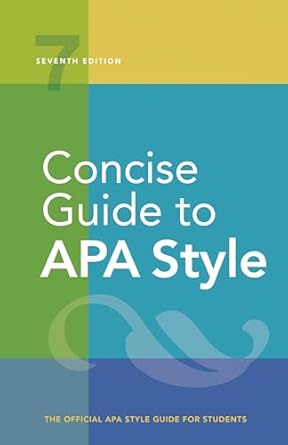[toc]
hyphenation rules a guide to clear writing
Concise Guide to APA Style: 7th Edition (OFFICIAL)
Page 127 Review
DOCTYPE html>
A Comprehensive Look at Hyphenation Rules: A Commentary
This excerpt provides essential guidelines on when to use hyphens in compound words, prefixes, and suffixes.
Mastering these rules can significantly improve the clarity and professionalism of your writing.
Let’s delve into some key aspects covered in the text.
Prefixes and Suffixes That Don’t Require Hyphens
The text begins by outlining numerous prefixes and suffixes that generally do not need a hyphen.
Examples include:
- _able: “retrievable”
- anti: “antisocial”
- co: “covariate”
- cyber: “cyberwarfare”
- extra: “extracurricular”
- inter: “intercede”
- macro: “macrocosm”
- mega: “megawatt”
- micro: “microcosm”
- multi: “multimethod”
- non: “nonsignificant”
- over: “oversampling”
- post: “posttest”
- pre: “preexperimental”
- re: “reevaluate”
- semi: “semidarkness”
- sub: “subtest”
- super: “superordinate”
- un: “unbiased”
- under: “underdeveloped”
As the text indicates, consider examples like “retrieveable”, “antisocial”, “covariate”, “cyberwarfare”, “extracurricular”, “intercede”, “macrocosm”, “megawatt”, “microcosm”, “multimethod”, “nonsignificant”, “oversampling”, “posttest”, “preexperimental”, “reevaluate”, “semidarkness”, “subtest”, “superordinate”, “unbiased”, “underdeveloped” .
Exceptions to the Rule
The text notes important exceptions, such as the use of a hyphen in “meta-analysis” and “quasi-experimental”, demonstrating that context and specific word combinations matter.
“Note.
However, use a hyphen in “meta-analysis” and “quasi-experimenta”
Compound Words Requiring Hyphens
The excerpt then transitions to compound words where hyphens are necessary, providing clarity and preventing misinterpretation.
This includes instances where the base word is capitalized:
- Capitalized Base Word: “pro-Freudian”, “Likert-type”, “Stroop-like”
- Number: “post-1977”
- Abbreviation: “pre-UCS trial”
- More Than One Word: “non-achievement-oriented students”
“Compounds in which the base word is capitalized: pro-Freudian, Likert-type, Stroop-like; a number: post-1977; an abbreviation: pre-UCS trial; more than one word: non-achievement-oriented students”
Self- Compounds
The excerpt emphasizes the necessity of hyphens in all “self-” compounds, whether they function as adjectives or nouns:
- “All “self-” compounds, whether adjectives or nouns? self-report technique, the test was self-paced, self-esteem”
Preventing Misunderstanding
Hyphens also play a crucial role in distinguishing meanings in words that could otherwise be misunderstood:
- “Words that could be misunderstood: re-pair (pair again), re-form (form again), un-ionized (not ionized)”
Avoiding Ambiguity with Vowels
The rules extend to preventing visual ambiguity in words where a prefix ends and the base word begins with “a”, “i”, or “o”:
- “Words in which the prefix ends and the base word begins with “a,” “i, or o: meta-analysis, anti-intellectual, co-occur”
However, it clarifies that “Pre” and “re” compounds are not hyphenated with base words beginning with “e” (e.g., “preexisting,” “reexamine”).
“But “self psychology.” Pre” and “re” compounds are not hyphenated with base words beginning with “e” (e.g., “preexisting,” “reexamine”).”
Conclusion
In conclusion, mastering these hyphenation rules is essential for precise and professional writing.
By understanding when to use hyphens with prefixes, suffixes, and compound words, writers can avoid ambiguity and enhance the clarity of their communication.
The text clearly outlines these rules, emphasizing their importance in conveying intended meaning.
Pay close attention to the exceptions and specific cases to ensure accuracy in your writing.
Buy full ebook for only $18: https://www.lulu.com/shop/american-psychological-association/concise-guide-to-apa-style-7th-edition-official/ebook/product-rmzpq54.html?page=1&pageSize=4
Hyphenation Rules A Guide To Clear Writing
Read more: Mastering Abbreviations: A Guide for Academic Writing


Leave a Reply